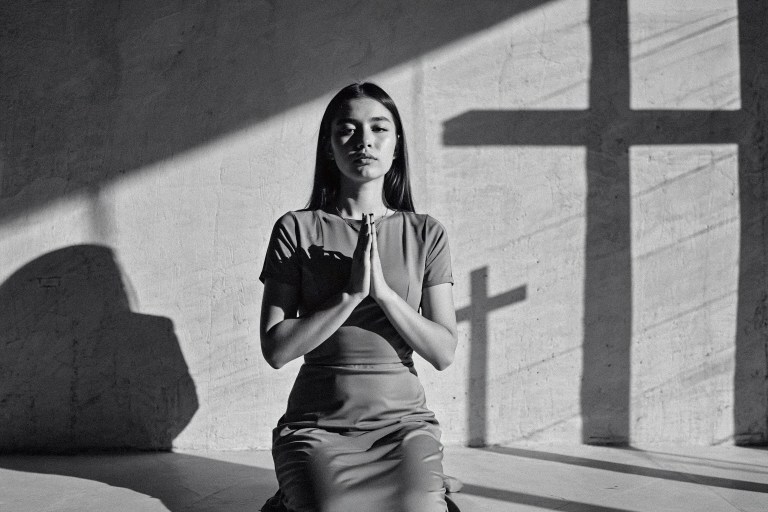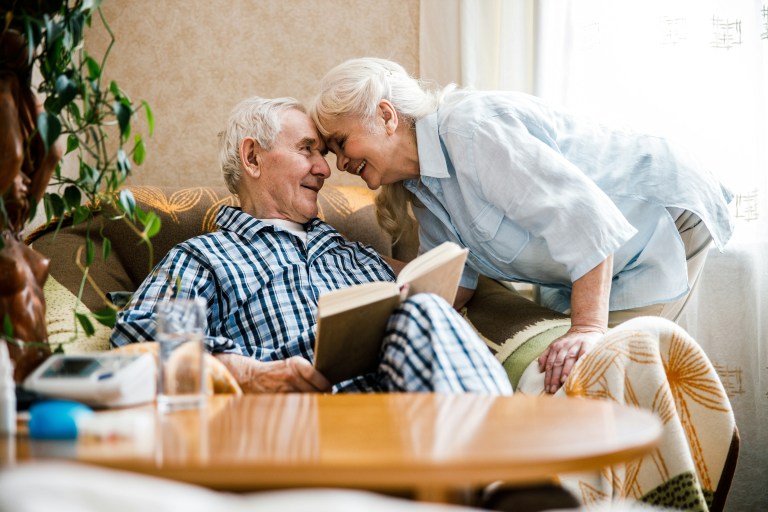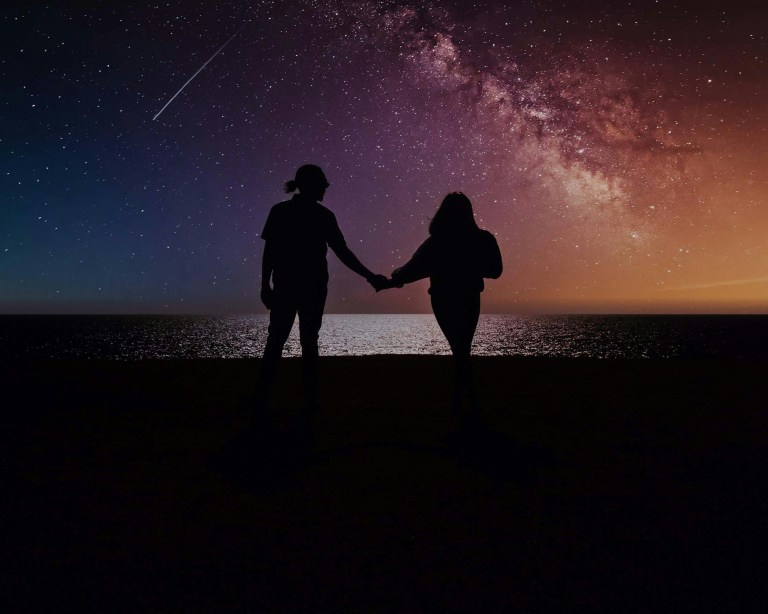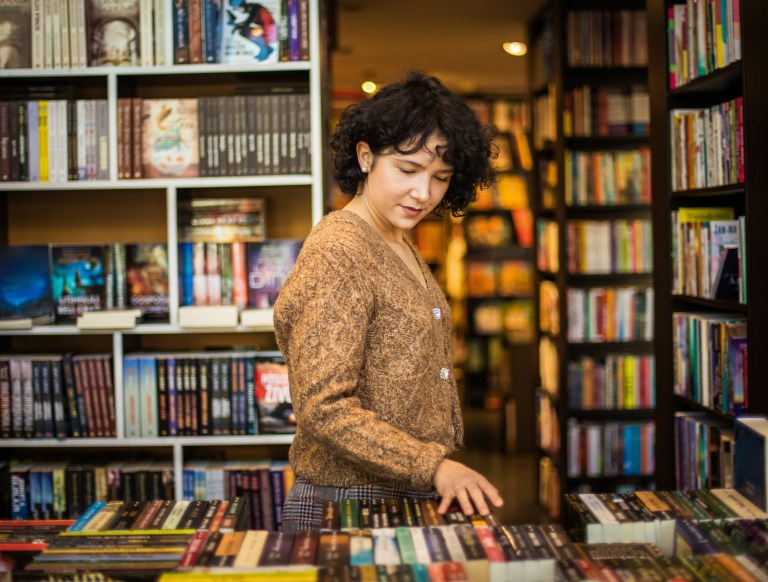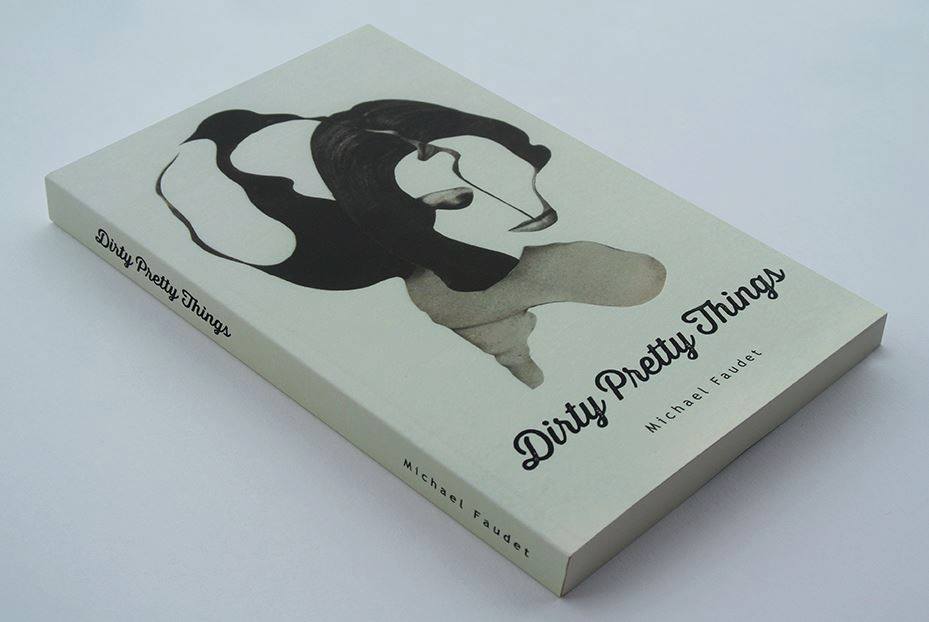
When You’re Truly In Love, You Never Have To Question It: Michael Faudet Talks Love, Poetry And His Relationship With Lang Leav
Perhaps the most important lesson I've learnt from a broken heart is that it isn't the end of love. Just the end of a relationship. Of course going through a break up is horrible and it really does take a long time to heal and move on. For me, it has become a source of…
By ![]() Sayan Sen
Sayan Sen
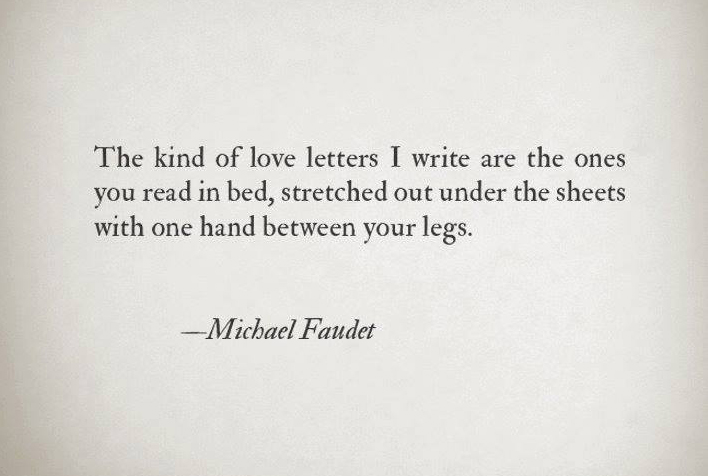
Generations roll, tumble and fade into view and every once in a while, you feel one person’s language seeping into the depths of your being and caressing you in a way you’ve never been touched.
Every once in a generation, you find people like Michael Faudet, an enigma, a sorcerer of magic, a person who pushes his own genius off the edge and rises anew every single time.
Faudet, who is the partner in crime of world famous poet Lang Leav and author of bestselling volumes “Dirty Pretty Things” and “Bitter Sweet Love” rose to prominence over the past years, filling the Internet with soul poetry and quotes that speak the anthems of a young generation set ablaze by love and passion.
In a strange and joyous turn of events, I managed to catch up with him to talk about what goes into making us bold, beautiful and brilliant.
Let us start at the start. Where did you grow up and how did it affect the way you feel and express yourself, today?
I was born in the United Kingdom but moved to Australia when I was thirteen. I kept the British accent but lost any real desire to return. Sunshine, golden sandy beaches and reasonably priced ice cream are all hard to resist. I think I learnt many positive things living in such a care-free environment, the only negative was a fear gained of giant spiders and poisonous snakes.
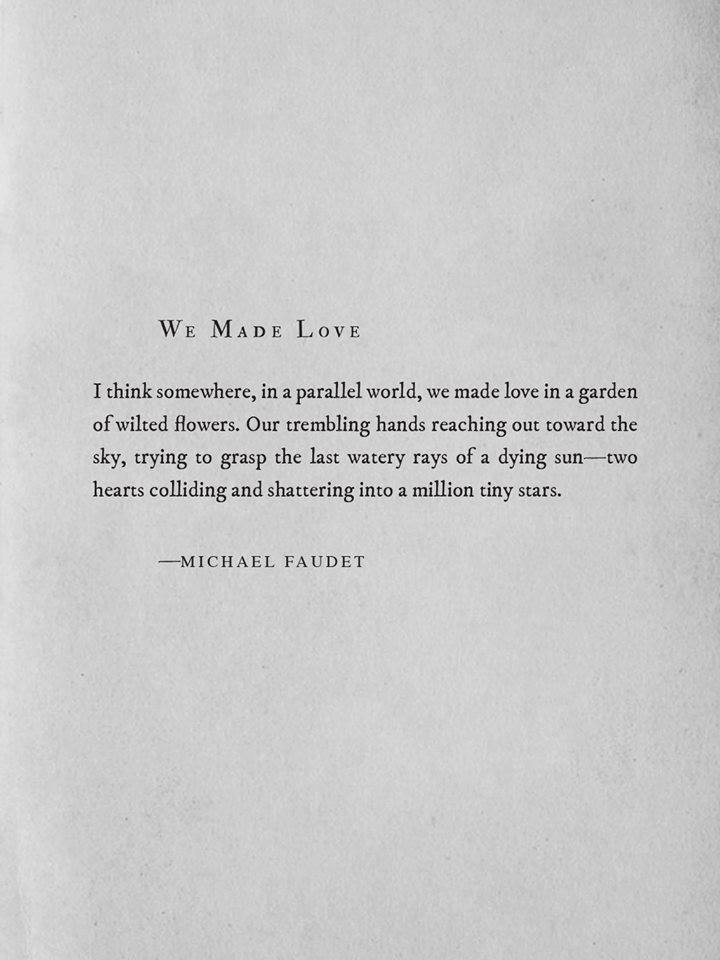
Australia was a stepping stone to embarking on a career in advertising, which resulted in several years working as a Creative Director and managing creative departments. Developing ideas and creating many campaigns for international clients, not only helped hone my writing skills but also allowed me to work in many cities and visit other countries. The job also provided me with the opportunity to meet and collaborate with some incredibly talented people from all corners of the world. One of the greatest learnings I took from being surrounded by such a diverse and eclectic group of characters is that you should always be open to the possibilities.
Somewhere in-between the ridiculously long hours spent in offices and endless presentations in boardrooms, I managed to live a life. However, it was a life half lived, so I decided to walk away from my comfort zone and start again. To focus on my own creativity and have more time to do nothing. Moving to a little house by the sea in New Zealand has given me the freedom to reflect on the amazing highs and devastating lows which are all part of growing up. The inspiration behind many of the pieces I now write. Best of all, the spiders have got smaller and there are no poisonous snakes.
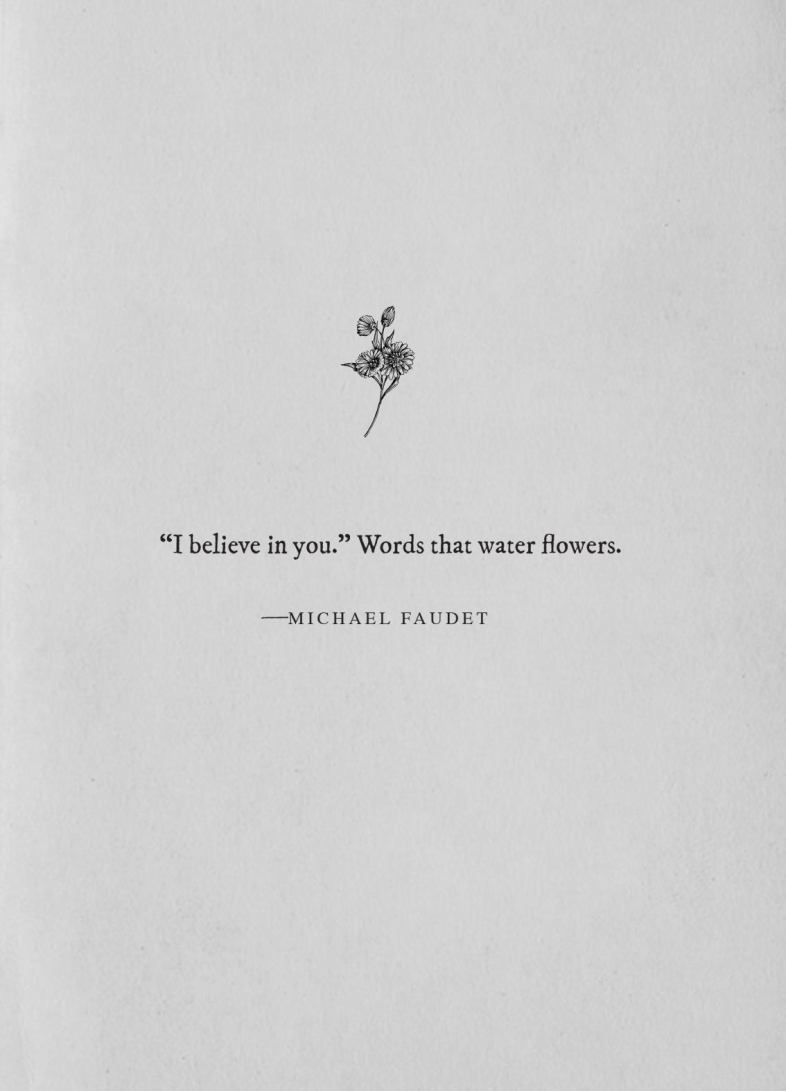
When did you realise that you’d want to be a writer and how did you start out, given how difficult it is for any up and coming one?
As a child I frequently picked up a pencil and wrote little stories. Having said that, the idea of becoming a writer never occurred to me and I was far more obsessed with Dr. Who. Of course any inklings of traveling into space was put to rest by the prospect of bumping into a Dalek. In high school, becoming a marine biologist seemed a good kind of answer to give enquiring adults. A shark documentary killed that idea. As I’ve mentioned, I eventually ended up in advertising which began my journey of writing words to pay the bills. Making the transition to writing books was difficult from the aspect of commitment more than doing the actual writing. I think we all have dreams, the real struggle is deciding to chase them. Believing in ourselves and overcoming the fear of rejection and failure.
Do you think that love is a constant or can we as humans fall in and out of love?
I think the fundamental human need to love and be loved is a constant. Other than that, we can never take love for granted.
How did you meet Lang Leav and how has it changed the way you live and feel?
I bought a painting from Lang. She was living in Sydney and I had just settled in Auckland. What began as a random transaction on the internet led to a year of exchanging emails and having late night conversations on Skype. In fact, every Sunday we would write something for each other, a poem or a piece of prose. We called it our ‘Sunday Stories’. It was our love of words that finally brought us together in the one country. Lang flew to New Zealand for a short visit and never left. I still remember the first time I held her hand. It felt instantly familiar, like I had known her well beyond this life.
I once wrote, ‘When you’re in love, truly in love, you never have to question it.’ This is how I feel about Lang. – Michael Faudet
I think our partnership has changed us both for the better. Personally and professionally. Lang and I often share ideas and always discuss pieces we have written. We also respect each other’s creative freedom. Together, we are stronger. Between us, we now have six books published and Lang’s debut novel, Sad Girls, will be released worldwide in May of this year.
When we’re not writing books or traveling, we live a simple life. Taking our dog for a walk in the park, watching late night movies, eating ice cream and we love making dumplings. Lang is my best friend, lover and soulmate.
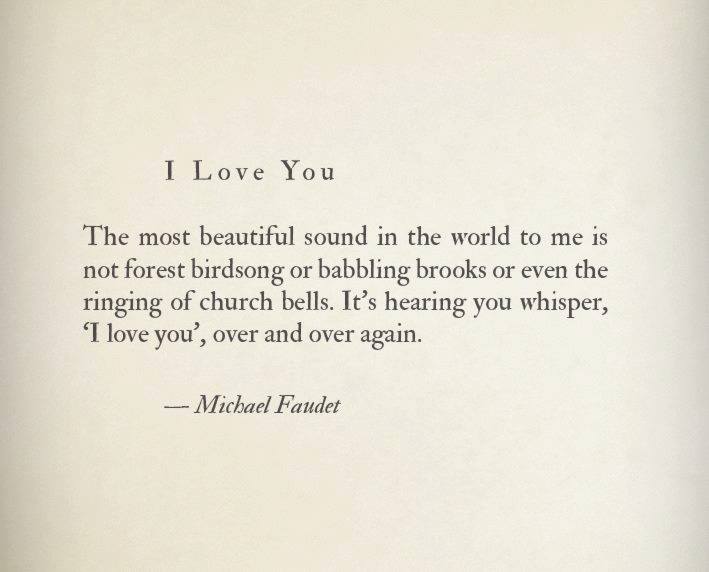
Tell us about how young poets and writers should market themselves in this day and age?
Personally, I feel the most important aspect of writing is to enjoy putting words down on paper. Believe in yourself and stop worrying about what others may think. Sometimes the toughest critique is that nagging voice inside our heads. The trick is learning when to listen and when to ignore it. As for marketing, social media can help but it is not a magic carpet ride to success. Sure, it can get your work out there, but the same rules apply to writing as it does to any content posted online. If people like it, they will share it and the more they do, the more viral it will become. So my advice to a young writer or poet is not really profound. Just focus on the words and don’t stop writing.
.
What does poetry mean to you? Do you believe that art is a way of life, like a religion that remains unspoken?
Poetry is just one expression of my work. I also enjoy writing prose and little short stories. I tend to focus more on the idea and then decide how best to express it. I find in some instances, brevity of words can say so much more. Other times, the words just keep flowing. I never let rules or tradition dictate how I write. For me, the emphasis is about capturing an emotion and translating it into words. I enjoy taking complex themes, like love and loss for example, and expressing them in a way that strikes a chord with the reader.
Poetry is such a beautiful language, no matter the style, rhythm or format. – Michael Faudet
I believe art is an integral part of life. I couldn’t imagine a world without it. Pablo Picasso said, “The purpose of art is washing the dust of daily life off of our souls.” When we interact with art, in any shape, form or medium, it evokes an emotion, and often provides a new perspective. It can also challenge us, which is a good thing. Not only does art act as a record of humanity, it sometimes predicts the future too. The book, 1984 by George Orwell, is perhaps more relevant now than the period in time in which it was written.
In a world that is turning crueler by the day, do you believe that love can be enough to save us?
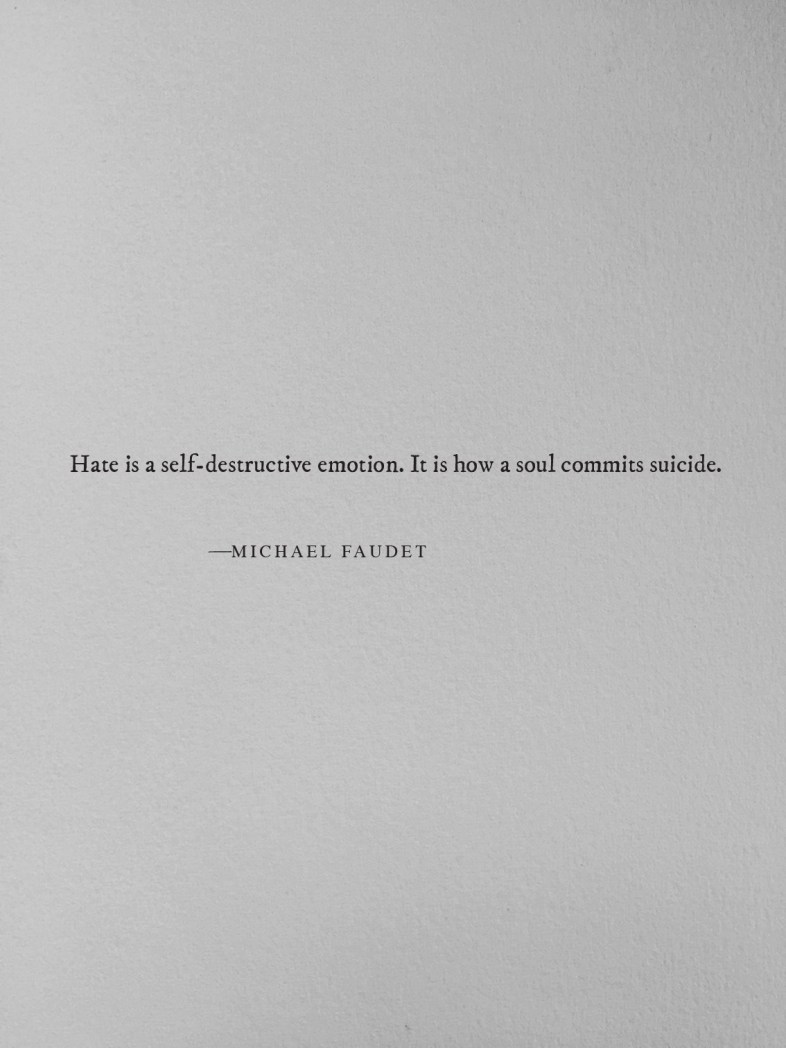
When in history hasn’t the world been cruel? I’m not convinced it’s getting worse. I just feel we live in an age of technology that makes it easier to be exposed to social injustice, horrific crimes, cruelty and hatred. On the flip side, the internet has proven to be a wonderful tool for uniting the world for good and showcasing that as ‘Earthlings’ we have more in common than what divides us. There is no doubt that evil exists but we should never forget that it thrives within the minority. The majority of human beings are decent, caring individuals who just want to live their lives in peace.
I think kindness rather than love per se is a far more immediate emotion that can make a real difference to any society. Be the voice of tolerance and acceptance. Focus your energy on the positive and never underestimate the power of hope. Each of us has a personal choice on how we wish to conduct our lives and communicate with others.
I once wrote, “Hate is a self-destructive emotion. It is how a soul commits suicide.” – Michael Faudet
Why do you think this generation is suffering from such great depression and how can we grow through it?
Depression manifests itself in different degrees. From clinically diagnosed depression to the niggling worries we all experience in daily life. Often the expectations we set ourselves are unrealistic and consequently we get disappointed when we don’t meet our lofty goals. How we handle rejection is another aspect that can compromise and erode our happiness. There are no easy answers as to how anyone can overcome depression completely. Seeking professional advice is an option that shouldn’t be ignored. For me personally, I try to remain focused on what is working in my life rather than being consumed by anxiety, setbacks and self-doubt. Easier said than done, I might add.
What role has pain played in making you who you are today?
I once spent three months in plaster with a broken leg. It wasn’t much fun. However, it taught me a lifelong lesson. Never stand behind an angry horse. Heartbreak has been another wonderful teacher. Harder to avoid than a horse and far more painful than a shattered bone.
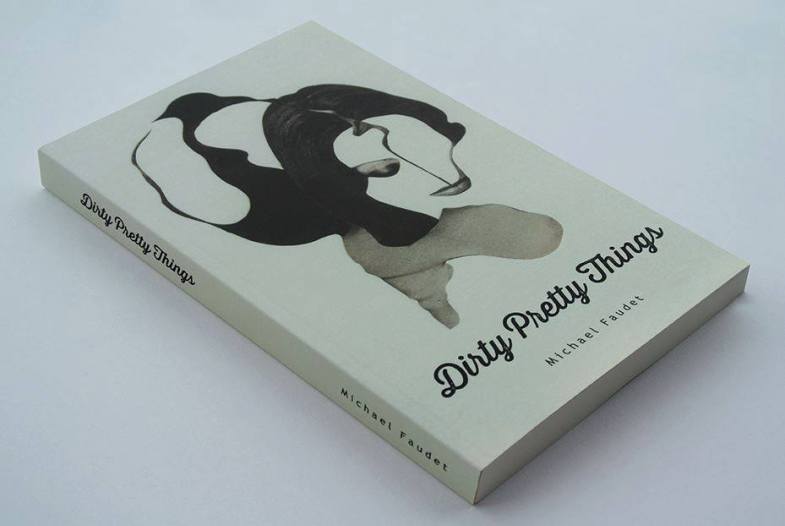
Perhaps the most important lesson I’ve learnt from a broken heart is that it isn’t the end of love. Just the end of a relationship. Of course going through a break up is horrible and it really does take a long time to heal and move on. Any form of adversity has the potential to shape who we are and what we will become. For me, it has become a source of inspiration. Not just in the context of writing but it has also helped me to grow stronger as a person. – Michael Faudet
What technical tips do you have for emerging writers about promoting themselves on social media?
My biggest tip, something I touched on in question five, is to focus more on the writing than becoming obsessed with the marketing.
When I wrote my first book, Dirty Pretty Things, my main concern was the manuscript. Which is why I didn’t rush it. In the back of my mind, I never forgot that my readers were the people who could ultimately determine the book’s success or not. Social media certainly helps get the message out there but like I mentioned before, it’s no real guarantee of anything. Building an audience for your writing also takes time, a lot of time. I think I spent over a year posting pieces of writing on Tumblr before I even thought about releasing a book. I then created a dedicated Facebook page. To be honest, I didn’t get onto Twitter or Instagram seriously until after Dirty Pretty Things was first released.
I consider myself very lucky. Dirty Pretty Things attracted the interest of New York literary agency, Writer’s House. I was quickly signed by them. My wonderful agent, the legendary Al Zuckermann, worked tremendously hard and managed to get me a two book deal with U.S. publisher, Andrews McMeel. Thanks to our combined team effort, Dirty Pretty Things and Bitter Sweet Love are now in bookstores worldwide and both have topped international best seller charts. Having said that, I never get complacent. (Another tip.) I continue to write at every opportunity. In 2017, I hope to release a new poetry and prose book and I’m also working on a fun project with Wattpad. A modern, dark fairytale with gothic undertones called Zana. When the story is complete, my plan is to release it as a novella.
I guess what I’m trying to stress to any emerging writer is best summed up by Lang Leav. She wrote, “Remember, your words are your power. Never forget your words.”
What would you tell your readers about happiness, truth and life in general?
Never take yourself too seriously. Life is too short for that kind of nonsense. ![]()
